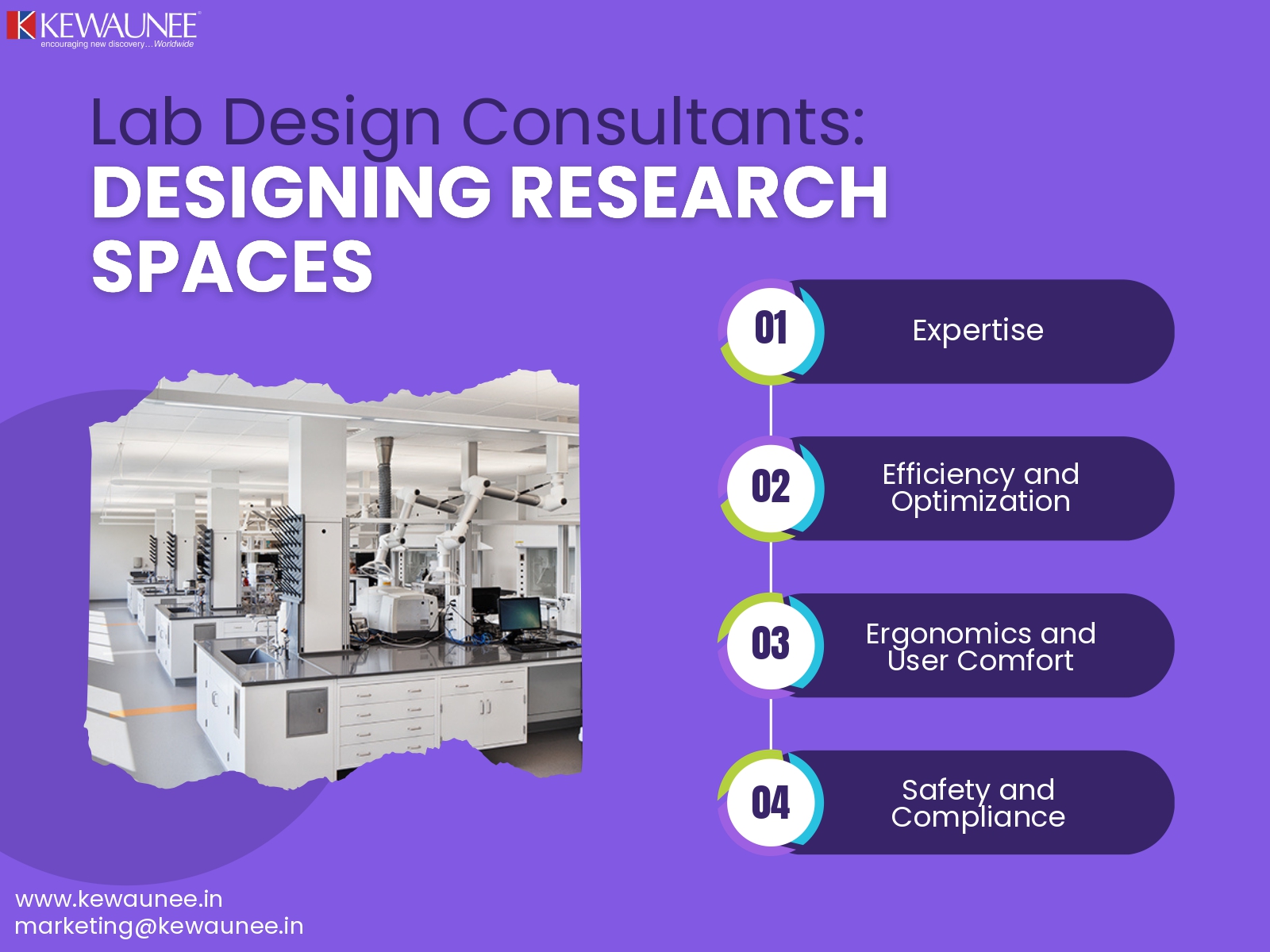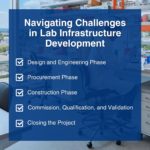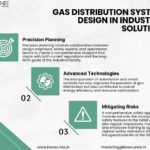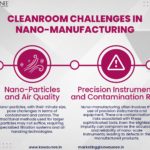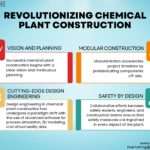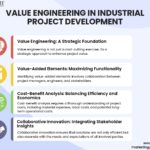Lab Design Consultants: Designing Research Spaces
In the world of scientific research, the design of laboratory spaces plays a crucial role in facilitating efficient workflows, ensuring safety and compliance, and promoting innovation. Lab design consultants are professionals with expertise in creating optimal research environments.
In this blog, we will explore the importance of lab design in research spaces and delve into the role of lab design consultants in designing functional, ergonomic, and future-proof research spaces.
Understanding Lab Design Consultants
Lab design consultants are professionals who specialize in the planning, design, and optimization of laboratory spaces. They possess extensive knowledge of industry standards, regulations, and best practices in lab design.
By leveraging their expertise, lab design consultants help organizations create research spaces that maximize productivity, promote safety, and enhance the overall research experience.
Benefits of Hiring Lab Design Consultants for Research Spaces
Collaborating with lab design consultants offers numerous benefits for organizations and researchers.
Some of the key advantages include:
- Expertise: Lab design consultants bring specialized knowledge and experience in lab design principles, ergonomics, and safety regulations. They stay up to date with industry trends and best practices, ensuring that the lab design aligns with the latest standards.
- Efficiency and Optimization: Lab design consultants conduct thorough assessments of research needs and goals, enabling them to optimize the layout and workflow of the lab. By streamlining processes and minimizing unnecessary movements, they enhance efficiency and productivity.
- Ergonomics and User Comfort: Lab design consultants prioritize ergonomic considerations in their designs. They create workstations, benches, and equipment placements that reduce physical strain and promote user comfort, thereby improving researcher well-being and preventing work-related injuries.
- Safety and Compliance: Lab design consultants have a deep understanding of safety regulations and standards. They ensure that the lab design meets the necessary safety requirements, including proper ventilation, storage protocols, and emergency preparedness, thus minimizing potential risks.
Assessing Research Needs and Goals
The initial consultation and needs assessment phase is crucial in lab design. Lab design consultants work closely with lab owners and researchers to gain insights into their specific research requirements, objectives, and constraints.
This includes understanding the nature of experiments, equipment needs, sample handling, data management, and anticipated future growth.
Planning and Conceptualization
Lab layout and space optimization are vital components of effective lab design. Lab design consultants employ their expertise to create layouts that maximize space utilization, promote efficient workflows, and facilitate collaboration. They conduct workflow analysis to identify bottlenecks and propose optimized solutions.
Additionally, ergonomic considerations are integrated into the design, ensuring that researchers can work comfortably and efficiently.
Designing Lab Infrastructure and Systems
Lab design consultants assist in the selection and placement of equipment to optimize functionality and usability. They work with lab owners and researchers to determine the ideal locations for instruments, storage areas, and workstations.
Furthermore, lab design consultants consider HVAC systems, environmental controls, electrical and plumbing requirements, and integration of technology and data management systems, ensuring a seamless and efficient research environment.
Future-Proofing Research Spaces
Research needs and technologies evolve over time, making it crucial to future-proof lab designs. Lab design consultants employ strategies that allow for scalability and flexibility. They design labs that can adapt to changing research demands, accommodate new equipment, and facilitate future expansions. Incorporating modular design elements ensures that the lab can be easily reconfigured as research needs evolve.
Collaboration and Communication
Lab design consultants collaborate with architects, engineers, and contractors throughout the design and construction process. They facilitate coordination between various stakeholders, ensuring that the lab design aligns with architectural plans and engineering specifications.
Regular communication and updates ensure that everyone involved remains informed and engaged in the design process.
Project Management and Execution
Lab design consultants play a critical role in project management and execution. They assist in budgeting and timeline considerations, helping lab owners and researchers make informed decisions about resource allocation and project milestones.
Lab design consultants also manage the procurement and installation of lab equipment and furniture, ensuring that all components are properly integrated into the design. They conduct quality control and inspections to verify that the lab meets the required standards and specifications.
Additionally, lab design consultants navigate unforeseen challenges and modifications that may arise during the construction phase, ensuring smooth project execution.
After the completion of the lab design project, lab design consultants conduct post-occupancy evaluations to assess the functionality and user satisfaction of the research space. They gather feedback from lab personnel and stakeholders, identifying areas for improvement and fine-tuning the lab design accordingly.
This iterative process allows for continuous improvement and optimization, ensuring that the lab remains effective and supportive of research activities.
Post-Occupancy Evaluation and Optimization
After the completion of the lab design project, lab design consultants conduct post-occupancy evaluations to assess the functionality and user satisfaction of the research space. They gather feedback from lab personnel and stakeholders, identifying areas for improvement and fine-tuning the lab design accordingly.
This iterative process allows for continuous improvement and optimization, ensuring that the lab remains effective and supportive of research activities.
Conclusion
Lab design consultants play a crucial role in creating functional, ergonomic, and future-proof research spaces. By leveraging their expertise, organizations and researchers can optimize lab layouts, streamline workflows, and ensure compliance with safety regulations.
Collaborating with lab design consultants allows for the customization of research spaces based on specific needs and goals. It enhances user comfort, maximizes efficiency, and promotes innovation.
Lab owners and researchers are encouraged to consider the expertise of lab design consultants to create research environments that support their scientific endeavors and foster success.
Comments are closed.

